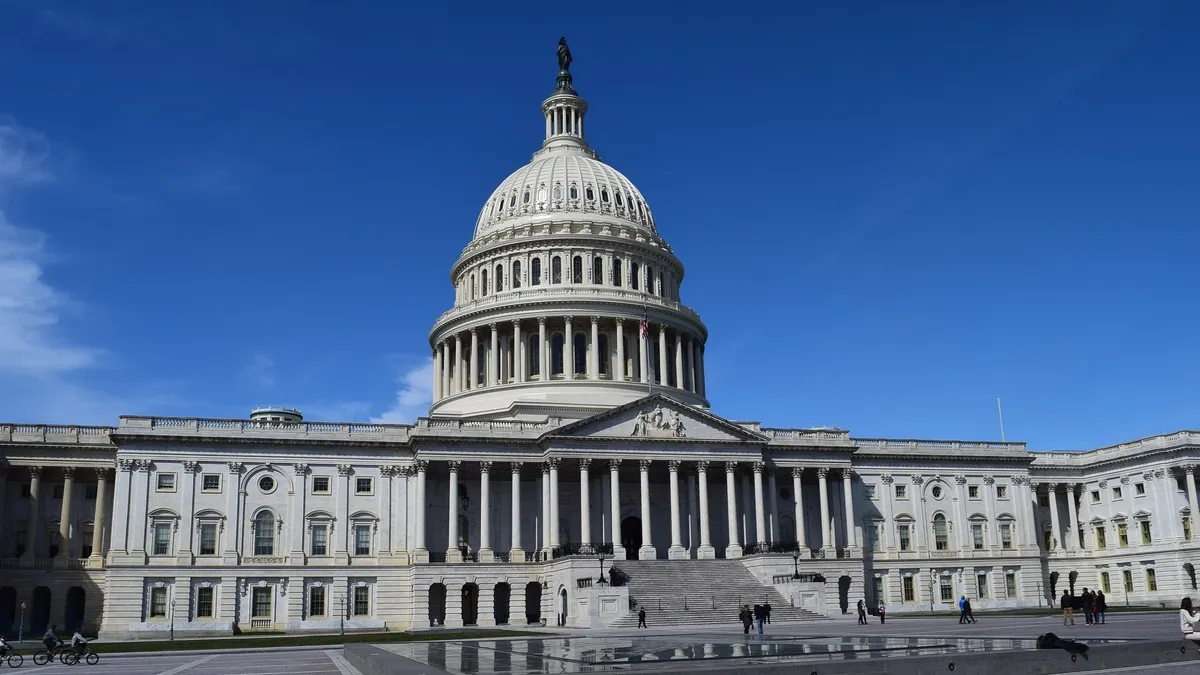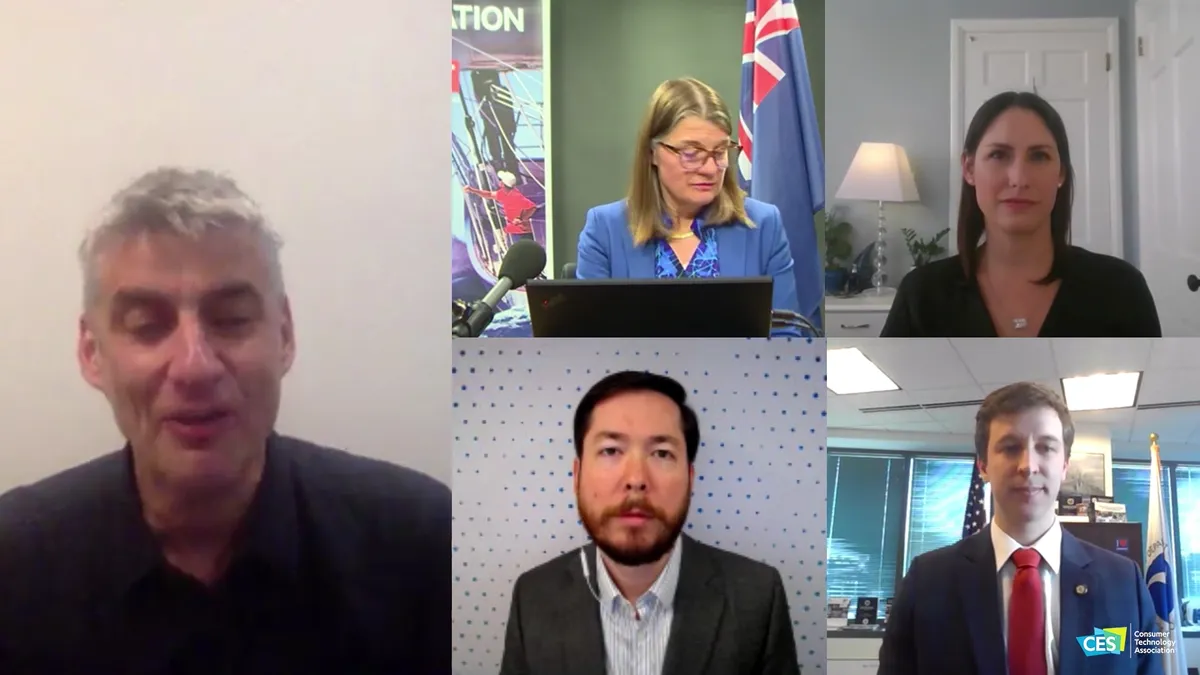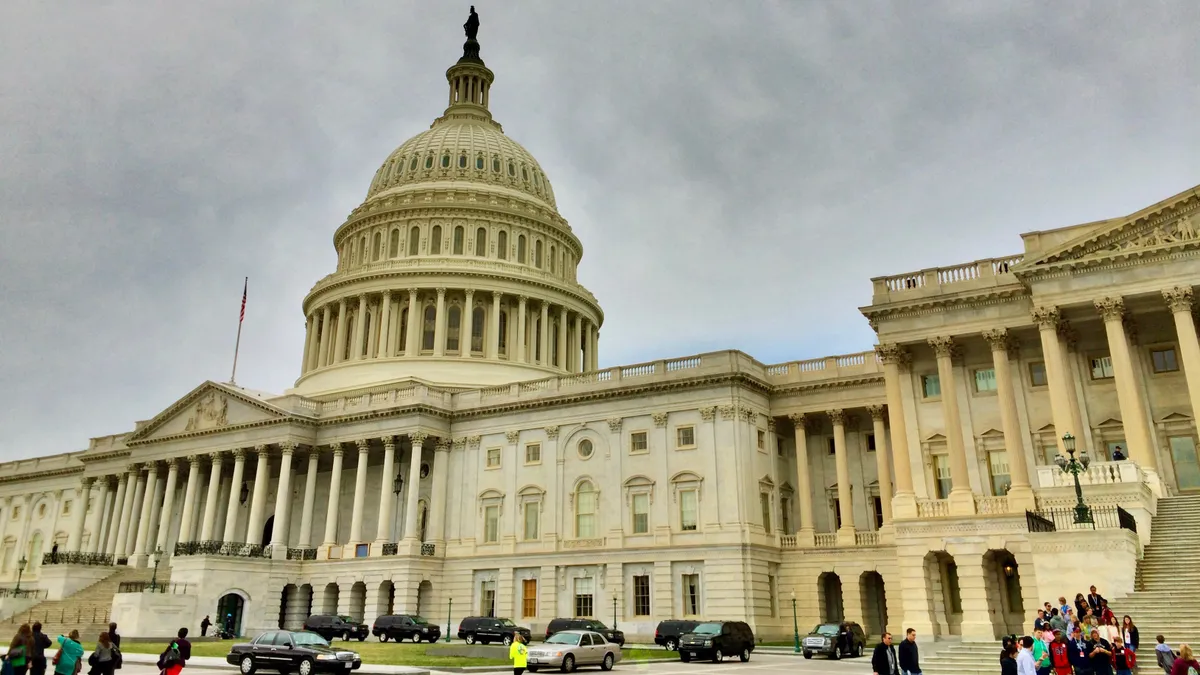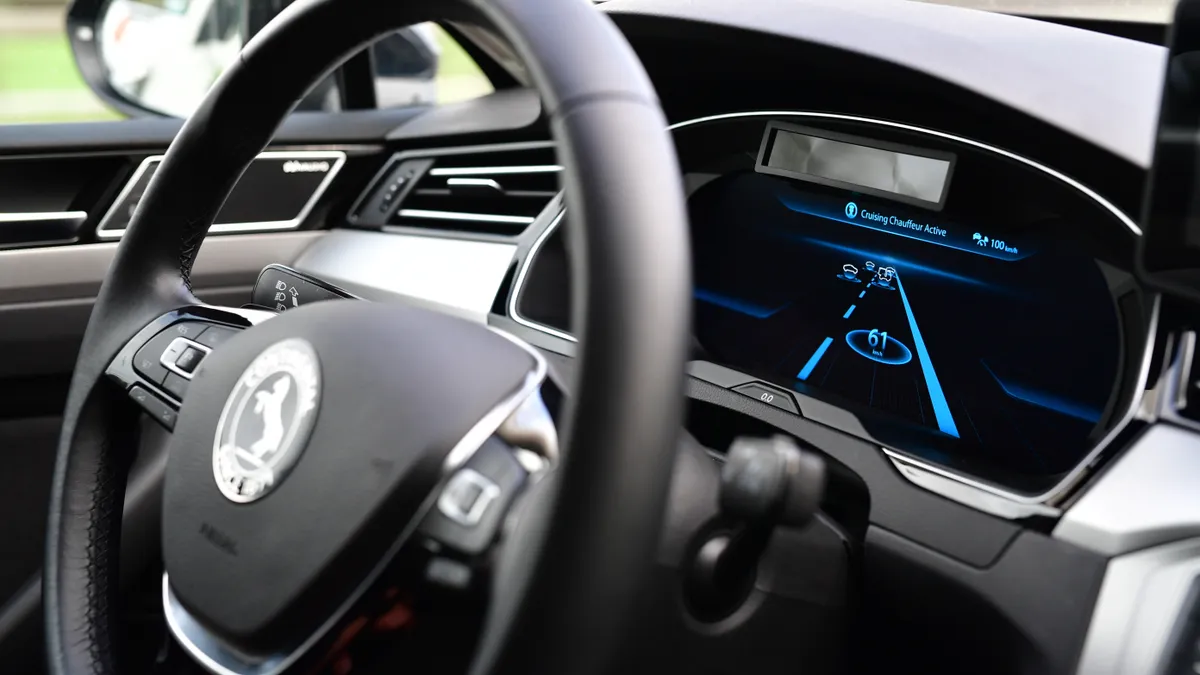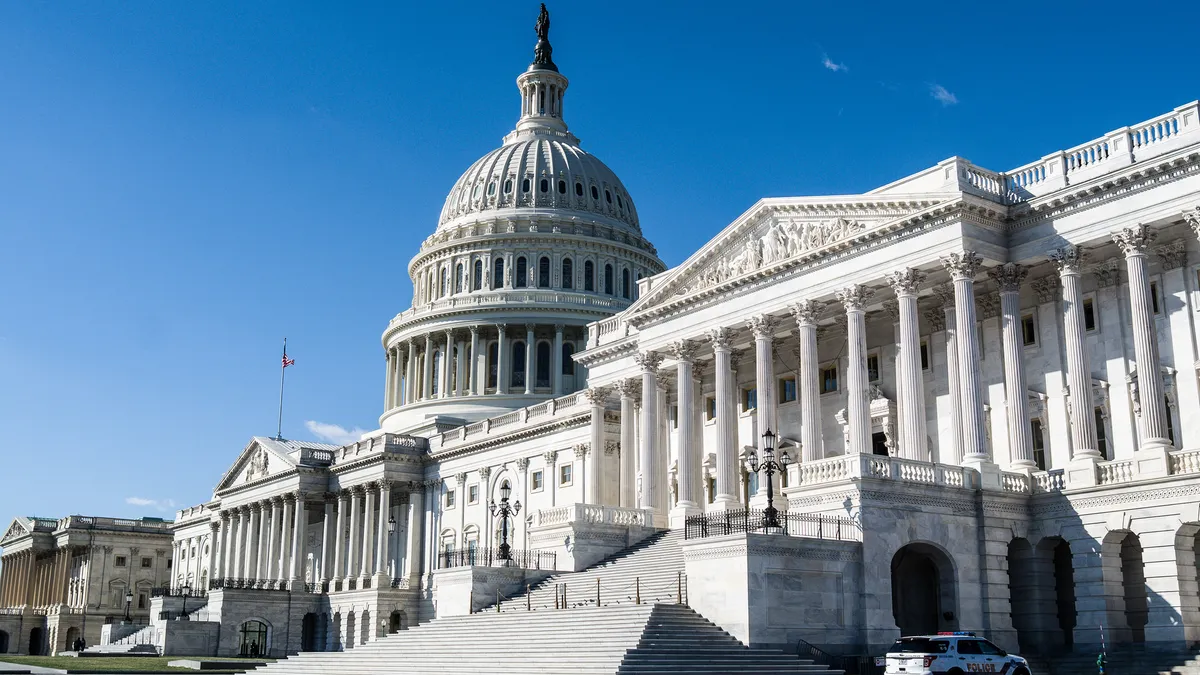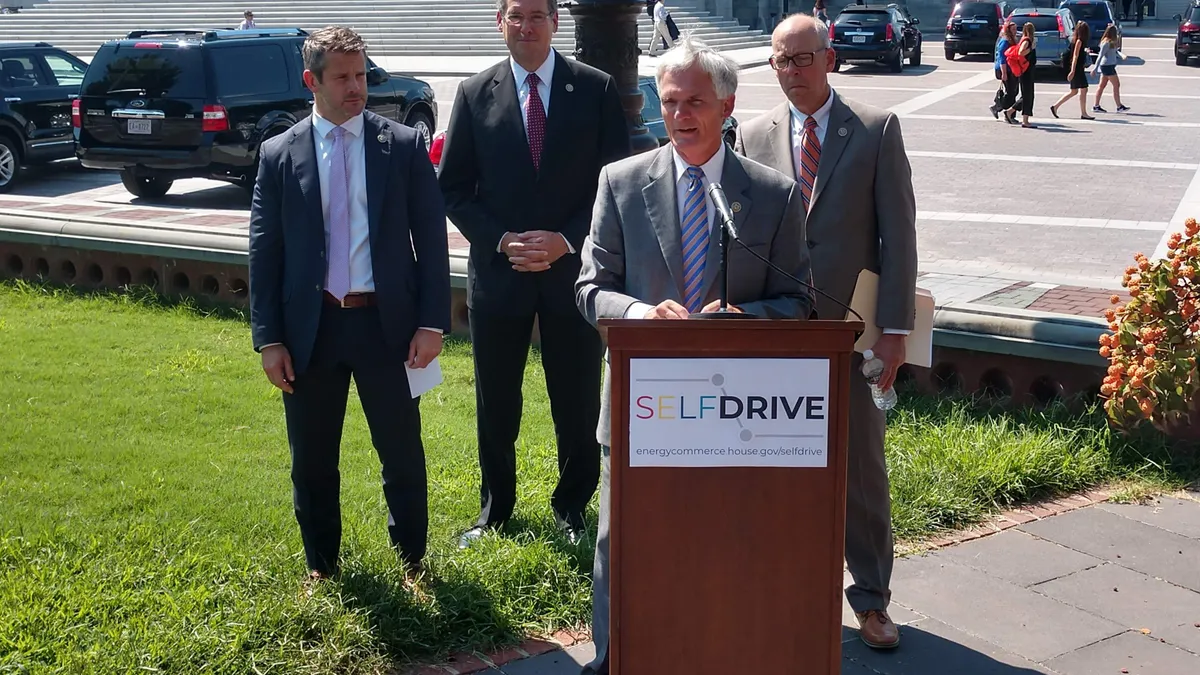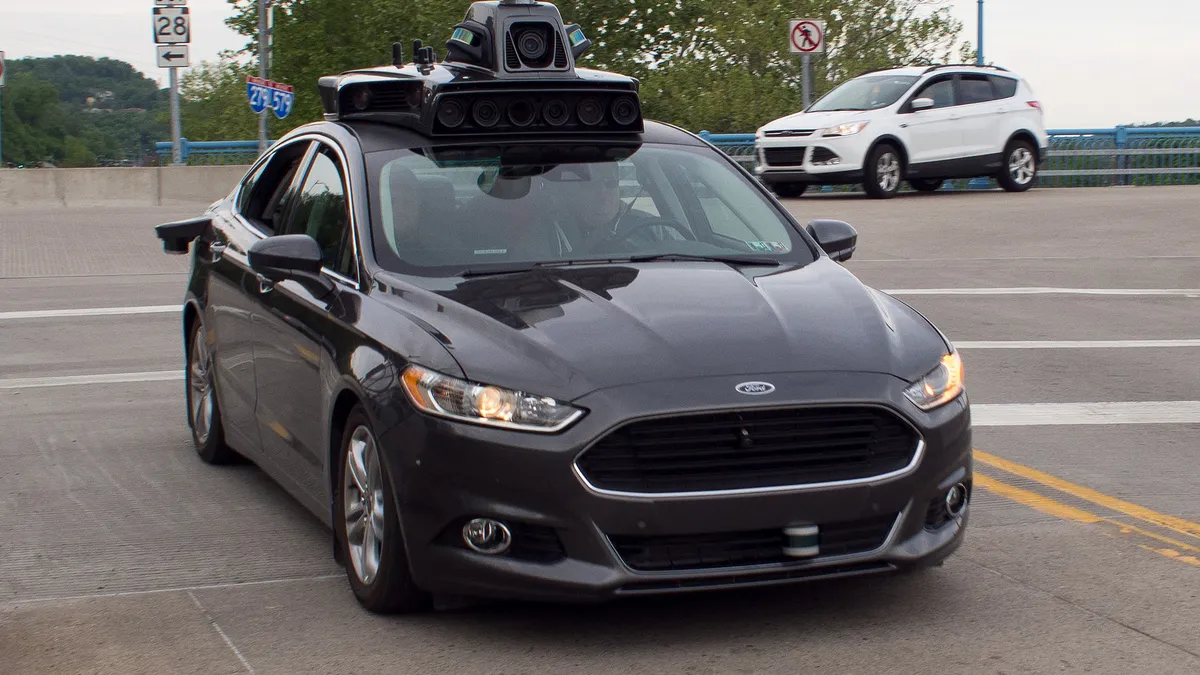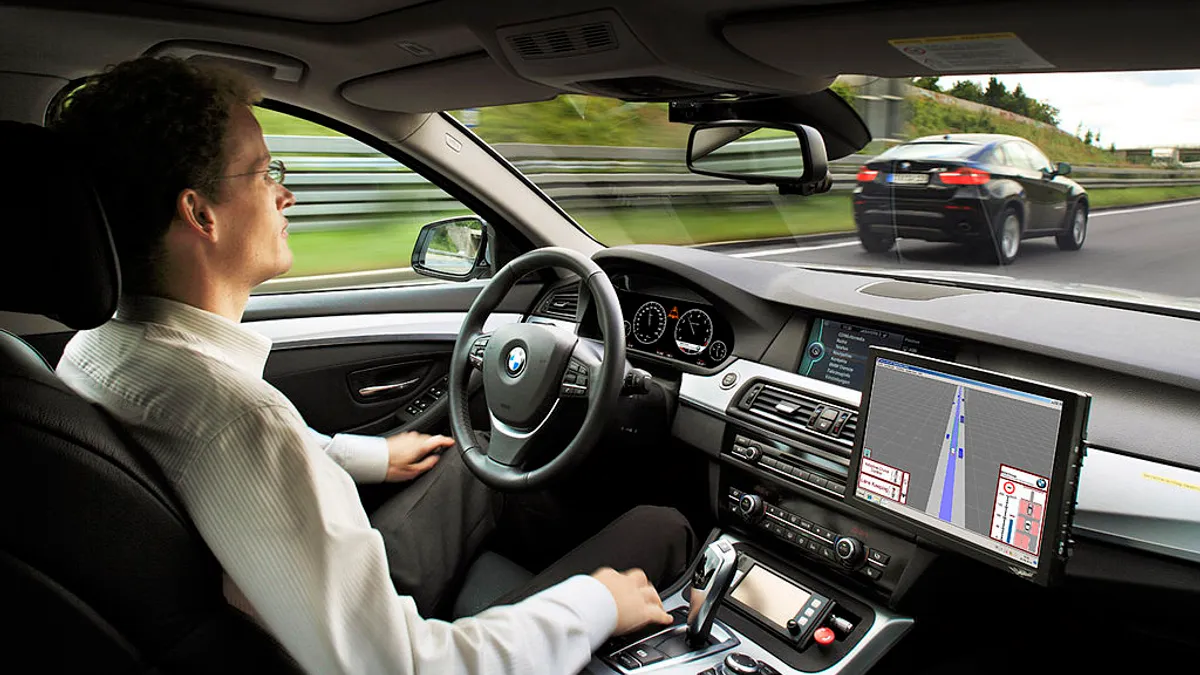Dive Brief:
- New federal legislation on autonomous vehicles (AVs) must do more to protect state and city governments' ability to pass their own AV laws, especially with safety concerns still swirling, speakers and elected officials said at a Capitol Hill hearing Tuesday.
- In testimony to the House Energy and Commerce Committee's Subcommittee on Consumer Protection and Commerce, Jeffrey Tumlin, director of transportation at the San Francisco Municipal Transportation Authority (SFMTA), said current draft legislation to regulate AVs is "irresponsible," as it would prevent state and local governments from making their own laws. "We will all learn more as different cities and states try different strategies to incorporate these vehicles safely into our stream of traffic," Tumlin said.
- Rep. Frank Pallone, D-NJ, appeared to agree with that assessment, saying that any bill must take into account "the appropriate role of state and local governments." He and other speakers continued to raise significant concerns over AV safety, which has been a continuing source of controversy in this process.
Dive Insight:
Congress tried in its last session to pass legislation regulating AVs. It managed to shepherd the Safely Ensuring Lives Future Deployment and Research in Vehicle Evolution (SELF DRIVE) Act through the House, but then saw the companion American Vision for Safer Transportation Through Advancement of Revolutionary Technologies (AV START) Act die in the U.S. Senate.
In the absence of firm federal guidelines, states including Arizona and California have stepped up with their own rules and regulations, while cities like Boston and Las Vegas have taken it upon themselves to do similar work with testing and deployment.
But this new legislation, being jointly drafted by staff of the relevant House and Senate committees, would remove the ability for states and cities to put forward their own regulations. Under the terms of the draft language being floated by stakeholders, the U.S. Department of Transportation (USDOT) would have 10 years to produce a plan on safety standards as AVs are rolling out, and in the meantime prevent any other government from trying to step in with their own rules.
"It's an interesting paradox of choices here that they've laid out," Brittney Kohler, legislative director for transportation and infrastructure services at the National League of Cities (NLC), told Smart Cities Dive in an interview last year.
Meanwhile, public acceptance of AVs remains in doubt. During the hearing, the group Advocates for Highway and Auto Safety (Advocates) touted its recent survey that found 85% of respondents are concerned about sharing the road with an AV, while 71% of those surveyed said they support minimum safety requirements.
Advocates President Cathy Chase said during testimony that given those numbers, it’s state and city governments' duty to protect people, especially "in the void of federal regulation."
Tumlin said cities need every tool in the toolbox to regulate AVs, especially as local officials are more familiar with what is going on in their own jurisdictions.
"We need all the authorities we have now, and we're concerned that the preemption language in the proposed legislation takes away the authority and power that we have now to keep our streets safe," Tumlin said.
The draft legislation has been released in sections by committee staffers; Morning Consult reported the final portions are expected to be available this week.



